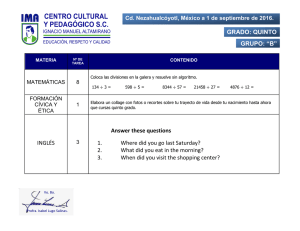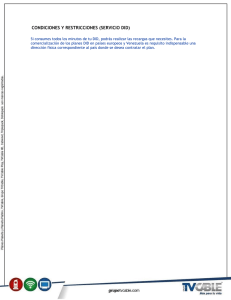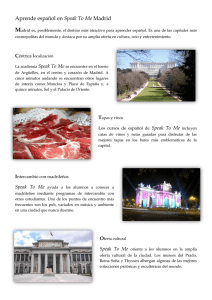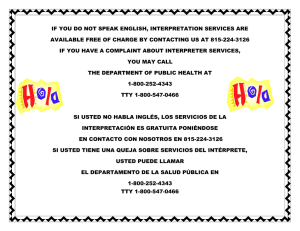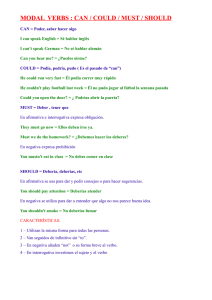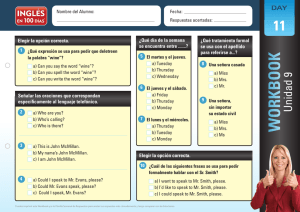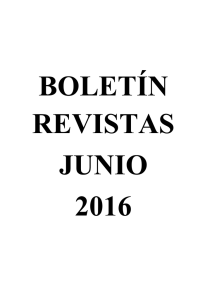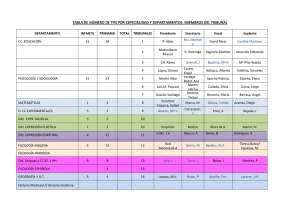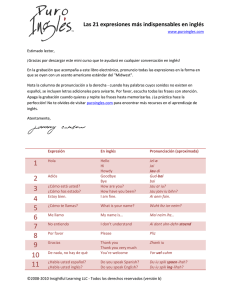gramática inglesa gratis, free english grammar, curso inglés mp3
Anuncio
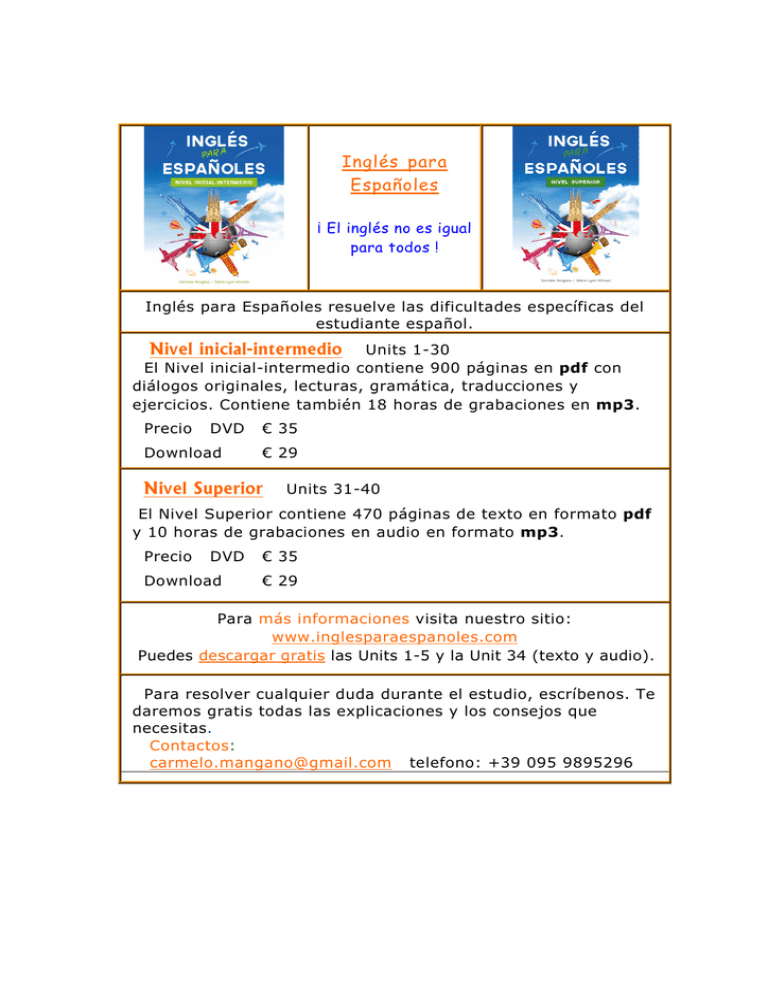
Inglés para Españoles ¡ El inglés no es igual para todos ! Inglés para Españoles resuelve las dificultades específicas del estudiante español. Nivel inicial-intermedio Units 1-30 El Nivel inicial-intermedio contiene 900 páginas en pdf con diálogos originales, lecturas, gramática, traducciones y ejercicios. Contiene también 18 horas de grabaciones en mp3. Precio DVD Download € 35 € 29 Nivel Superior Units 31-40 El Nivel Superior contiene 470 páginas de texto en formato pdf y 10 horas de grabaciones en audio en formato mp3. Precio DVD Download € 35 € 29 Para más informaciones visita nuestro sitio: www.inglesparaespanoles.com Puedes descargar gratis las Units 1-5 y la Unit 34 (texto y audio). Para resolver cualquier duda durante el estudio, escríbenos. Te daremos gratis todas las explicaciones y los consejos que necesitas. Contactos: carmelo.mangano@gmail.com telefono: +39 095 9895296 Lesson 34 www.inglesparaespanoles.com Free English Grammar * 1. 1 Gramática Inglesa Gratis ‘Forma Interrogativa’ y ‘Forma Negativa’ de los verbos. to be = ser - estar Forma Positiva Forma Interrogativa Forma Negativa to have = tener Forma Positiva Forma Interrogativa Forma Negativa can Jack has black hair. Has Jack black hair? Jack has not (hasn’t) black hair. = puedo; sé (hacer una cosa) Forma Positiva Forma Interrogativa Forma Negativa must Luca is a good student. Is Luca a good student? Luca is not (isn’t) a good student. Jane can speak French. Can Jane speak French? Jane cannot (can’t) speak French. = debo, tengo que Forma Positiva Forma Interrogativa Forma Negativa Abel must get up early every day. Must Abel get up early every day? He must not (mustn’t) waste time watching TV. Was - were - could - will - would - should - may - might siguen las mismas reglas. Observa a. En la forma interrogativa el verbo precede al sujeto. Is Luca…? b. Has Jack…? Can Jane…? Must Abel…? En la forma negativa se añade ‘not’ al verbo. Luca is not… Jack has not… Jane cannot… Abel must not… Lesson 34 Free English Grammar * 2. 2 www.inglesparaespanoles.com Gramática Inglesa Gratis ‘Forma Interrogativa’ y ‘Forma Negativa’ de los verbos. to do = hacer Present Simple I do = yo hago we do you do = tú haces you do he does = él hace etc. they do En la página precedente hemos visto como se obtiene la forma interrogativa y la forma negativa de: to be - to have - can - must was - were - could - will - would - should - may - might. Con los otros verbos no se puede decir: > Speak you French? He speaks not French. Se tiene que decir: > Do you speak French? (lit. ¿Haces tú hablar francés?) - ¿Hablas francés? He does not speak French. = (lit. Él no habla francés.) Con “do” y “does” “don’t” y “doesn’t” se obtiene la forma interrogativa y la forma negativa del “present simple”. Forma Interrogativa Forma Negativa Forma Contracta Do I speak? I do not speak I don’t speak Do you speak? you do not speak you don’t speak Does he speak? he does not speak he doesn’t speak Do we speak? we do not speak we don’t speak Do you speak? you do not speak you don’t speak Do they speak? they do not speak they don’t speak Lesson 34 Free English Grammar 3. 3 www.inglesparaespanoles.com * Gramática Inglesa Gratis ‘Forma Interrogativa’ y ‘Forma Negativa’ de los verbos to do = hacer Past Simple I did = yo hice you did = tú hiciste he did = él hizo ecc. we did you did they did Con “did” y “didn’t” se obtiene la forma interrogativa y la forma negativa del “past simple”. Forma Interrogativa Forma Negativa Forma Contracta Did I like? I did not like I didn’t like Did you like? you did not like you didn’t like Did he like? he did not like he didn’t like Did we like? we did not like we didn’t like Did you like? you did not like you didn’t like Did they like? they did not like they didn’t like > Did you like the movie “Titanic”? (¿Te gustó la película “Titanic”?)
